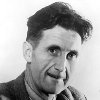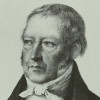“ Man is indeed unholy enough, but he must regard humanity in his own person as holy. In all creation every thing one chooses and over which one has any power, may be used merely as means; man alone, and with him every rational creature, is an end in himself. ”
Immanuel Kant, Critique of Practical Reason (1788). copy citation
| Author | Immanuel Kant |
|---|---|
| Source | Critique of Practical Reason |
| Topic | humanity creation |
| Date | 1788 |
| Language | English |
| Reference | |
| Note | Translated by Thomas Kingsmill Abbott |
| Weblink | http://www.gutenberg.org/cache/epub/5683/pg5683-images.html |
Context
“It is then not to be wondered at that man, as belonging to both worlds, must regard his own nature in reference to its second and highest characteristic only with reverence, and its laws with the highest respect.
On this origin are founded many expressions which designate the worth of objects according to moral ideas. The moral law is holy (inviolable) . Man is indeed unholy enough, but he must regard humanity in his own person as holy. In all creation every thing one chooses and over which one has any power, may be used merely as means; man alone, and with him every rational creature, is an end in himself. By virtue of the autonomy of his freedom he is the subject of the moral law, which is holy. Just for this reason every will, even every person's own individual will, in relation to itself, is restricted to the condition of agreement with the autonomy of the rational being, that is to say, that it is not to be subject to any purpose which cannot accord with a law which might arise from the will of the passive subject himself;”
source



